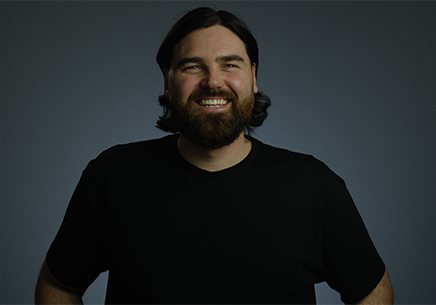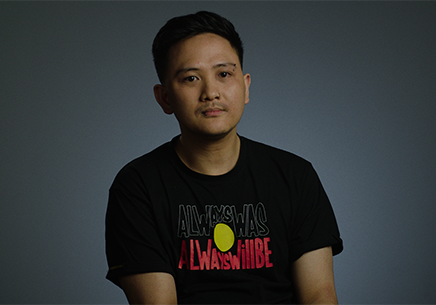OK, so you’ve watched the What is Therapy series. And now you’re giving therapy some serious thought. So, let’s get into it.
Showing information for:
Where should I look?
This will depend on if you have insurance or not. If you have insurance (private or public), it’s about understanding what therapy providers are included in your insurance network. Not all providers work with all insurance companies.
If you’re insured, you can locate a therapist and then check if they’re part of your insurance network. Or search online via your insurer using your zip code. Insurers have multiple plans, so it’s important to check that your plan covers you for that provider.
What if you don’t have insurance? You can do a search online for therapists in the area. You would need to pay for the sessions yourself. But many therapists are willing to negotiate a lower rate when circumstances allow. Ask them what your options are if you’re not covered by insurance.
Do I need a referral?
Probably not. You most likely don’t need a referral from your doctor to see a therapist. But some insurance companies require them. So be sure to check the mental health benefits section of your insurance company’s website or call them and ask.
What are the costs?
If you have insurance, it can vary depending on the policy you have. Some policies have a standard co-pay throughout the year. For example, you might pay a small amount at each visit. While other policies have a high co-pay to start but that co-pay decreases after you spend a certain amount.
If you don’t have insurance, you would need to pay for it yourself. But many therapists are willing to negotiate a lower rate depending on the circumstances.
There can also be public and community services that are low or no cost. And other options such as workplace Employee Assistance Program (EAP) services. These are offered at no cost to employees as part of employee benefits at some companies.
What if money is an issue?
Many therapists offer a “sliding scale” to help people who can’t pay the full fee. A sliding scale can help lower the costs and make the payments more affordable. But your therapist won’t know you need financial help unless you say so. Be sure to ask when you first make contact.
When it comes down to it, therapy can be expensive. But hopefully, you’ll be able to get some assistance and reap the benefits.
What should I look for in a therapist?
When you search “therapist” on the internet, you’ll find psychologists, counsellors, social workers, and marriage-and-family therapists. The different labels describe their training. All these folks have a master’s or doctoral degree that trained them to be a therapist. And they should be licensed by the state their office is in.
Also, have a good look through their website. Read their bio. Look at their pic. See how it all sits with you. It’s important to try and find a person who’s a good fit for you. Therapists are trained to work with anyone. But not every person can work with every therapist. Their personality, location, available times and specializations all influence if they’re the right therapist for you.
You can always make initial contact and request an opportunity to chat over the phone to get a feel for whether they would be a good fit. You might want to have a first appointment with 2 or 3 different therapists to see who you feel would be the best fit.
What are the wait times?
This can depend on the therapist. Sometimes public insurers will say that you’ve got to have your first appointment within a certain time, e.g. 2 weeks or 30 days. However, there’s no rule on the time between follow-up sessions.
What if the waiting list is months long?
If the waiting list is long, keep looking. Someone else might be able to see you sooner. Be relentless, your mental health deserves it.
What are the types of therapists?
There are many kinds of therapists out there. So, to be clear: we’re talking about “mental health” or “behavioral health” or even “clinical” therapists, not occupational therapists or physical therapists. Take time to research the right therapist for you. You're investing the time and money to go to therapy, so make sure you’re seeing someone who has the qualifications and skills to make it safe, and worthwhile.
The exact title a therapist uses depends on the field they studied in their graduate training. Therapists attend graduate school to earn at least a master’s degree, some have doctoral degrees. An advanced degree, including specific courses, are required to obtain a license. Your therapist might be a counselor, marriage and family therapist, psychologist, or social worker. There are also psychiatrists; they attended medical school. Psychiatrists, along with some nurse practitioners (NPs) and physician’s assistants (PAs), are able to prescribe medication but most of these folks don’t do therapy.
No matter what school they attended and the exact field they studied, all therapists are trained to work with a broad range of clients and issues, and most therapists have training in a range of different types of therapy. All therapists try to help people understand and change unhelpful behaviour and ways of thinking.
What are the types of therapy?
There are loads of approaches to therapy. It’s important to discuss the best approach with your therapist and come to a mutually agreed upon approach. Once they get to know you, they’ll probably be able – and willing – to recommend what might be right for you.
Should men see a male therapist?
Not necessarily. The aim is to feel comfortable and safe with your therapist, regardless of their gender. Seeing a male therapist is helpful for many men who might relate better to another man. Or feel more comfortable in the shared lived experience of ‘being a man’.
Other guys though, might find this too confronting (at least at the beginning). They might prefer a female therapist for any number of individual reasons, we don’t judge and neither will they! Men, women and anything in between, these therapists are all trained to support you on your mental health journey.
Focus more on seeking out someone you think you’ll feel comfortable with.
Focus on whether or not you connect with them first, rather than their gender.
How do I talk to my therapist for the first time?
A clever trick is to pretend they’re a long-lost friend you haven’t spoken to in a while and update them on your life. These don’t need to be hard, dark and awkward conversations, therapists are just humans. They’re not there to judge, they’re there to confidentially understand and support. If you’ve had a shit time before when trusting someone, that really sucks, but don’t let one bad egg ruin your omelette.
Your new therapist is used to talking to people for the first time, so let the therapist lead and do their thing. It's important for you to be honest, and to let your therapist know if there’s something you’re not ready to talk about yet. Remember, you’re the expert in your life, there’s only so much any therapist can do without you leading the way.
You can always make initial contact with a therapist and request an opportunity to chat over the phone. This gives you a feel for whether they would be a good fit.
Tip 1
Let the therapist lead and do their thing.
Chat to them like a friend you haven’t seen in a while.
Let them know what’s been going on in your life.
How should I prepare for a session? Especially the first one?
1. Jot down questions, goals, fears and motivations. Use a piece of paper or your phone. Think through all of these and try and be as open and honest as you can be. Have a think about your expectations and voice them to your therapist so you’re on the same page. Try this before any session.
2. Have an idea of your goals for therapy. Some good prompting questions to ask yourself are “What do I want to get out of therapy?”, “What changes do I want in my life/what do I want to be different?”, “How will I know when I’m done with therapy – what will be different for me?”, and “What’s not working and why?”
3. Relax. Try to free up your day after the session, or at least try not to immediately rush into another appointment or meeting.

Part of me was thinking everyone's stressed, get over it. But, what kept me on track was knowing that I can't feel like this forever.
Mark

Be fully committed to helping yourself, whatever it takes, however many psychologists you have to see or what you have to learn. There is an answer at the end.
Theodore

I think there's something valuable in being able to let out the things that have been really getting you down in one place, in a single place, and that's the place where you can process it, or you can leave it.
Nathan

It doesn't have to be that formal if you don't want it to be. Like, I made my therapist a slideshow.
Wolf
FREQUENTLY ASKED
QUESTIONS
How often should I see my therapist?
You’ll probably want to start with every week or every other week for the first few sessions. This will help your therapist get to know you and understand your concerns. After a few sessions you’ll both have a better idea about how often to meet.
Most research into the effectiveness of therapy is based on weekly or bi-weekly sessions. This is more of an ‘active’ approach to therapy. Monthly sessions, or less, are more of a maintenance approach.
It can depend though on how they tend to work. And what you prefer. It’s the time between therapy sessions where the real work (practice/exposure etc.) gets done. So, leave enough time in between to live a little.
What should I do between sessions?
Some therapists give homework to complete between sessions. But most just ask you to think about and try to incorporate what you’ve discussed during session. It might be time to invest in a journal to jot down your midnight brainwaves.
Your therapist will help you implement changes between sessions. This will mostly be based on the work you’re doing with them. Making day-to-day progress is key, and if you fall off the horse, the important thing is you don’t let it run away. Perseverance is the long game.
You can also talk to friends and family about what you’re hoping to work on and ask them to call you out if you’re falling back into patterns. The trusty old eat/sleep/exercise/repeat approach works well, too.
What if I start to struggle between sessions?
You don’t have to just sit and wait for your next appointment. Contact your therapist and ask to move your next session forward if possible.
If your therapist has taught you some coping skills, practice them. It’s the same as learning to play a sport, an instrument, or a video game: you have to practice to get better.
Also know that true, long-term resilience comes from within. So, riding the ups and downs and surviving it is real success. It’s expected the road will be bumpy and you will fall off the horse, but it’s how you get back on it that matters.
What if i’m having thoughts of self-harm or suicide?
There is always someone available, 24/7.
If you are having thoughts about self-harm or suicide call a service below immediately. Also consider saving them in your phone.
911
What’s next?
Check out all five ‘What is therapy’ videos if you haven’t already. Re-watching can be helpful, too – and we’re not just saying that because we made them. And hey, if you know someone who might find them useful share away.
We’d love to learn about your experience on Movember Conversations
We're here to create better tools and resources for you and your life. So open up! Tell us your thoughts and ideas.
